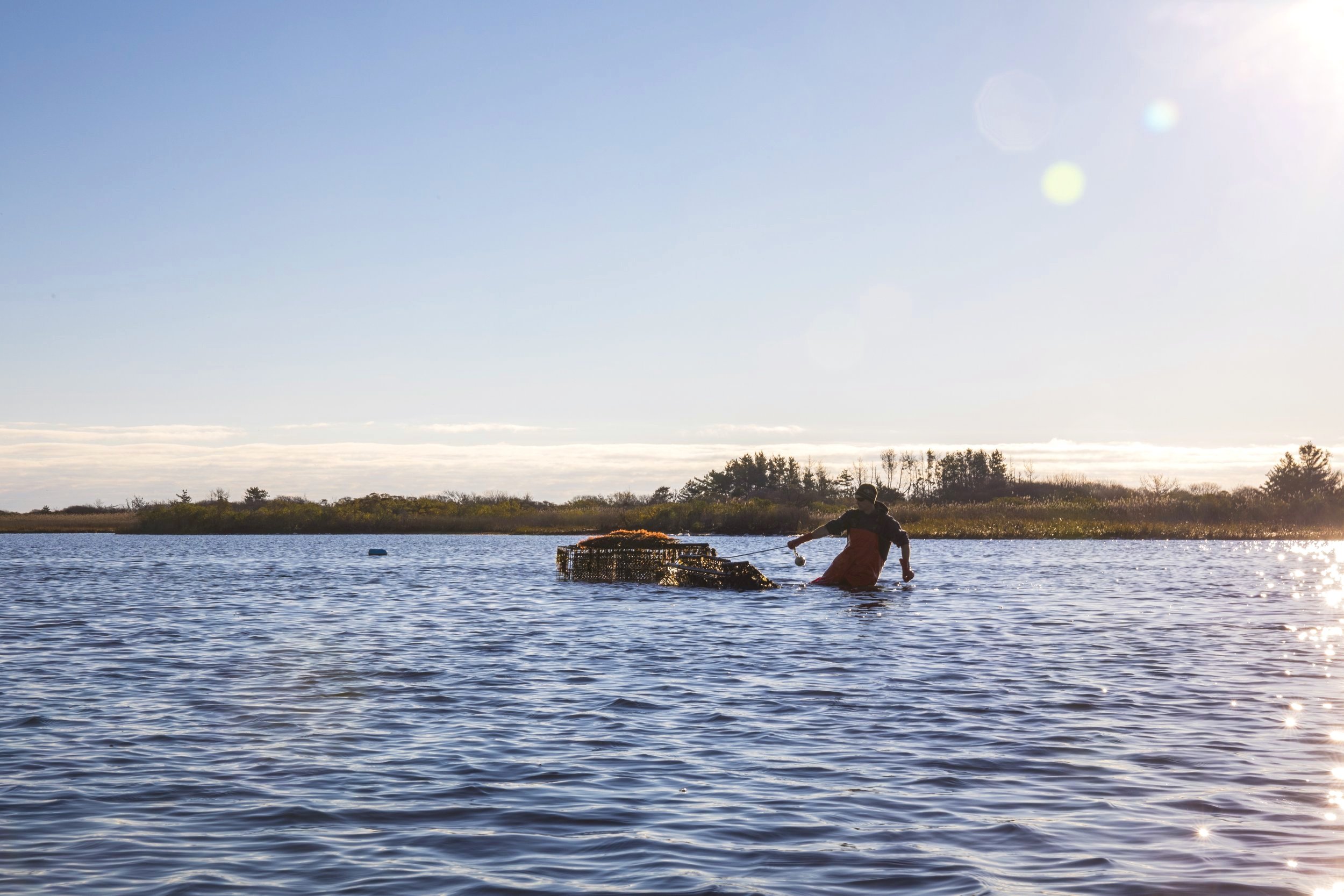
what does your farm’s name mean?
The name “Walrus and Carpenter” comes from the poem “The Walrus and the Carpenter” that appeared in the book “Through the Looking-Glass” (the sequel to “Alice in Wonderland” by Lewis Carroll. The poem tells the tale of a walrus and a carpenter who meet a group of oysters while out on a beach walk. We’ll leave the rest of the story for you to read!
Can I buy my oysters directly from you?
Yes! In addition to finding our oysters at local retail venues and restaurants in the area, we now offer weekly contact-free pick ups at our shop in Galilee! Orders will open each Monday and will remain available until sold out. Please navigate to the “Shop” tab to place your order. For larger orders or other questions, please contact Lilia, lilia@walrusandcarpenteroysters.com
How should I store oysters at home?
Oysters will be fine in the refrigerator for about two weeks. Oysters should not have a strong smell, so if you notice an oyster with an odd smell or an open shell, do not eat.
Do you cater private events?
We do not currently provide catering services, but we do know local shuckers, such as Lewis our Farm Director, who do! If interested, please email lilia@walrusandcarpenteroysters.com
How do I open an oyster?
How to Shuck an Oyster (illustrated)
Is it true I can only eat oysters in months that have an “R”?
The short answer is no. The old tradition recommends only eating oysters between September and April to avoid watery/thin oysters and the potential for spoilage. While it is true that oysters will usually have fuller, sweeter meat during colder months to stock up on food stores before waters are warm enough to filter feed, our oysters are equally as great in the summer! Our farmers hand sort each oyster that goes to market to guarantee high quality. Bacteria levels can grow at an exponential rate at warmer temperatures, but when ambient air temperatures are above 50 degrees, we cool all harvested oysters in an ice slurry to get them below 50 degrees and put them in our refrigerated truck until they reach their destination. This way we ensure that every oyster we harvest has been properly cooled and maintained at the appropriate temperature.
Will I find a pearl in my oysters?
While any bivalve can create a pearl by forming a smooth layer around a grain of sand, shell fragments, or other particles, commercial oysters do not have the same element that forms the shiny mother-of-pearl coating of “true pearls”. But if you find one, we’d love to know!
Isn’t commercial fishing bad for the environment?
Oyster farming is aquaculture, which is separate from commercial fishing practices. In fact, oyster farming is one of the most sustainable seafood industries and oysters help restore their waters in many ways. The farming gear we use also has very low impacts on the environment and our harvesting doesn’t affect wild oyster populations. Farmed oysters are ranked “Best Choice” by the Monterey Bay Aquarium’s Seafood Watch List.
Do you own the water where your farms are located?
No, we lease our farms’ waters from the state of Rhode Island through DEM and RI CRMC.
Do you have farm tours available for the public/school groups or plan on having the summer farm dinners?
Unfortunately, due to our small team size, we do not currently offer tours or plan on having farm dinners back this year for the public. But please keep an eye on our website and join our mailing list so you’ll be the first to know of any changes! We realize how important it is for us to connect with our community to provide educational outreach and programming, so this is an aspect of our farm we would like to grow in the future.
Do you have farm tours available for restaurants?
Yes! We love meeting with our customers, getting them out on the water, and seeing what we do on a daily basis! Please let us know if you’re interested in bringing your team out to the farm or would like us to come to you for an in-person presentation to learn more about local sustainably raised seafood and our practices.
WHERE TO FIND US?
We can be found in about 50 restaurants in Rhode Island, mainly concentrated in Newport and Providence, as well as retail outlets.
